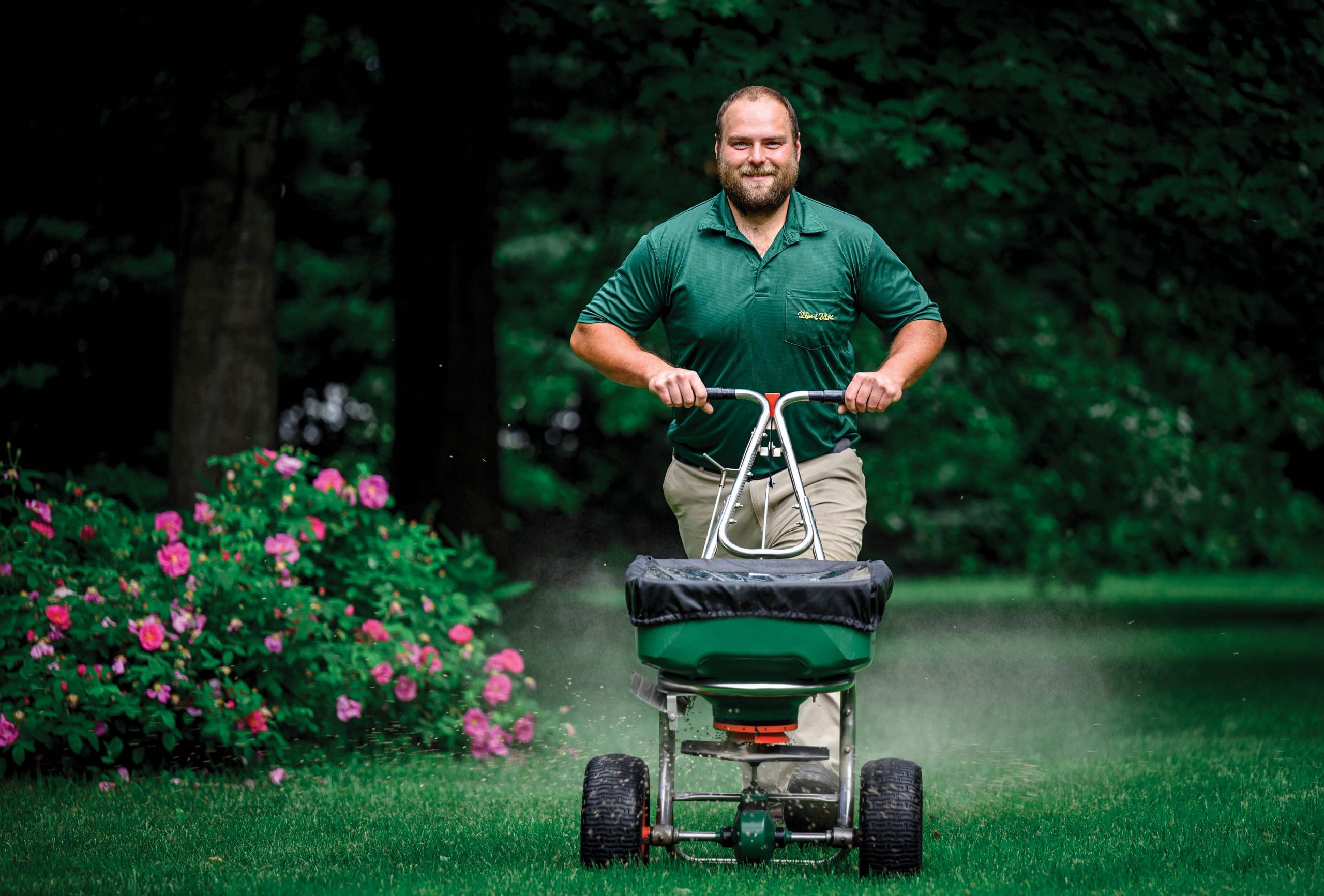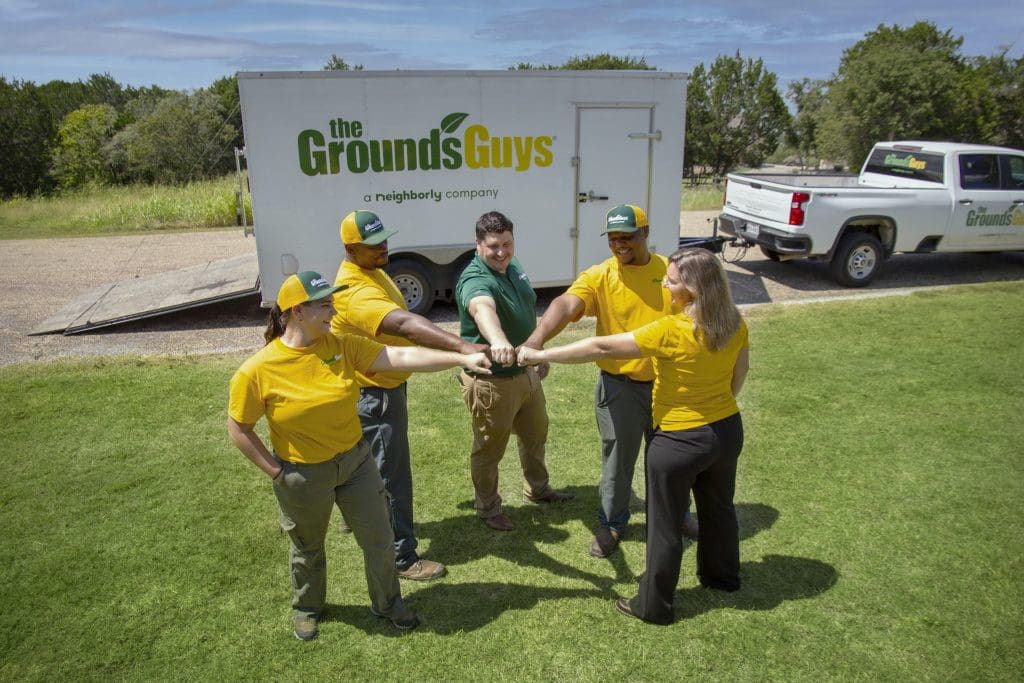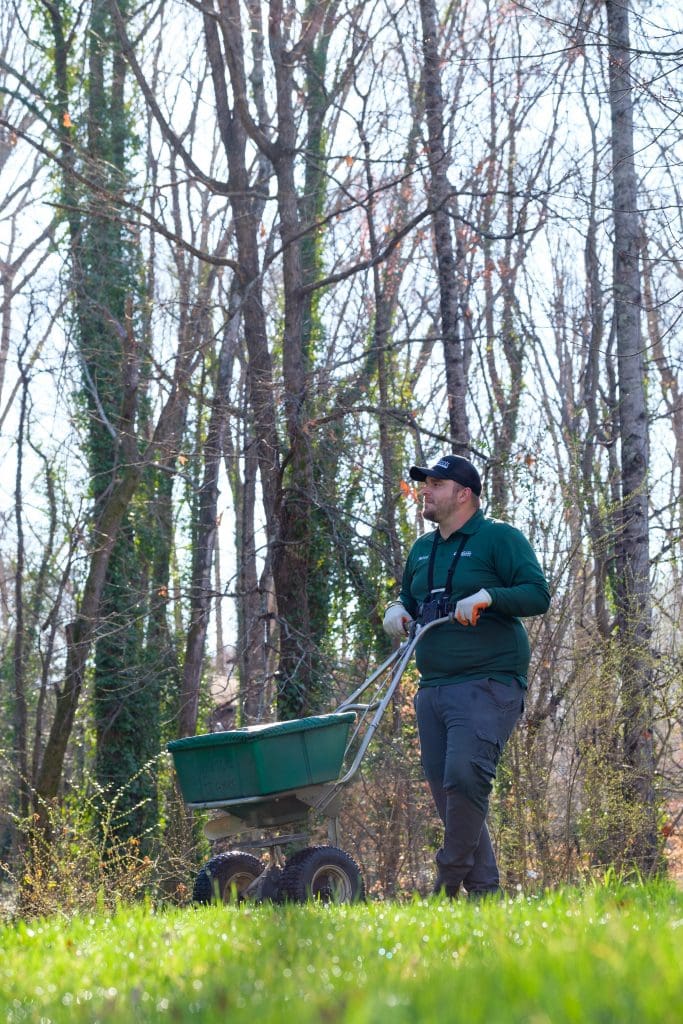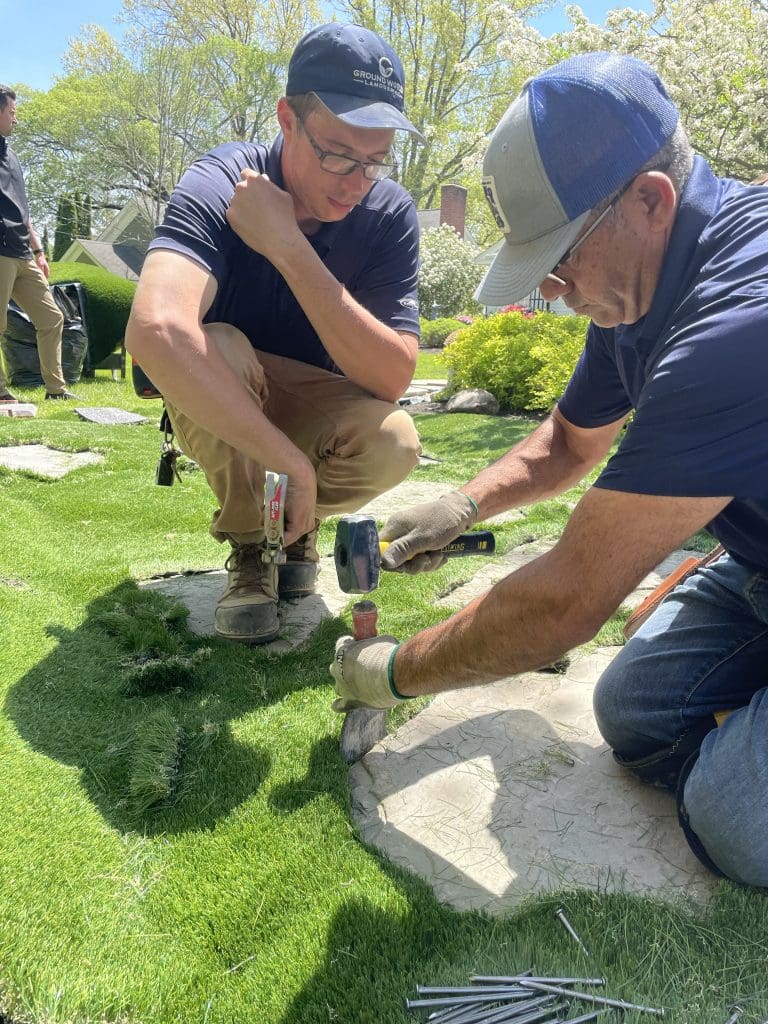
It’s natural to want to grow your business, and frustrating when you are hitting a ceiling. Adding a franchise is one option to help overcome this issue and to scale your company up.
“Adding a franchise will boost company revenue significantly if the owner follows the systems and policies in place,” says Josh Wise, CEO of GrassRoots Turf, based in Acworth, Georgia. “An owner with one spray truck doing the work himself will benefit immensely by joining a franchise and plugging into the systems and team for support. You only know what you know. In a franchise, you have several minds working together with the same goals in mind: profit and growth!”
Benefits of Adding a Franchise
There are multiple benefits to adding a franchise and the main one is you don’t have to reinvent the wheel. Rather than having to create a new service division from scratch, a franchise offers tried-and-true systems and processes that can help your business grow.
“At Conserva, for example, they are receiving hundreds of years of operational best practices, standardized chart of accounts and financial training, a full-on CRM enterprise system, a top-notch website with full SEO advantages, daily and weekly coaching, marketing expertise, and most importantly….a network of franchise owners/peers for which they can compete and lean on and learn from,” says Russ Jundt, president of Conserva Irrigation, based in Glen Allen, Virginia.
Some of the ceilings your company could be hitting can be this lack of systems or a proper organizational structure of having the right people in the right place.

“These guys are hitting ceilings because they can’t bring new business in, hitting ceilings because they don’t have staffing,” says Josh Sevick, president of The Ground Guys, based in Little Rock, Arkansas. “We teach people how to recruit. We’ve got systems that have special capabilities to engage with people and bring them in and catalog them and have multiple conversations before you ever pick up the phone with the candidate.”
Access to the systems not only allows you to grow the franchise business, but you can implement those operational efficiencies in your existing company as well. An example of this is how Ground Works Land Design, based in Cleveland, Ohio, added on the artificial grass franchise, Purchase Green, and has been able to implement the franchise’s estimating tool in their takeoffs.
“It’s really allowed us to button up our own estimating process and be really in line with each of our pieces of material or costs,” says Adam Swank, store manager for Purchase Green. “We’re right in line with each of those, so it’s been great.”
Adding a franchise also allows you to create another revenue stream for your company. The new clientele you attract from the franchise business can be cross marketed with your existing landscape business. This also enables you to be more competitive than others in your market by offering more services.
Jen Lemcke, CEO of Weed Man/Mosquito Hero/TurfBot based in Ontario, Canada, says adding a lawn care or mosquito control franchise are high-profit margin businesses that you can capitalize on with your existing customer database.
“Because of the history that we’ve got and the measuring tools that we have, we’re able to take someone from zero customers to 300 very quickly, then it’s 600, then it’s 900,” Lemcke says. “Last year, we grew in North America by 26 percent. We’re going to hit $308 million this year. We grew it one customer at a time, one franchise at a time. We didn’t do it through acquisitions.”
Franchises can also be implemented as an exit strategy. Sevick says they often have owners turning to franchises as a way to build a business that doesn’t revolve around them.
“That’s been the most common reason that people that with landscape businesses decided to join the franchise,” Sevick says. “The stories that we’ll hear is, ‘Hey, my family had to go on vacation without me this year because I knew with my staffing that if I left, I wouldn’t come back home to a business.’”
Know Yourself
When considering the franchisee growth route, the main question you need to ask yourself is how do you want to run your company?
Franchises are not a good fit for everyone and if you are more of an independent person that doesn’t do well being told how to run a business, it’s better to create the new division from scratch.
“If you’re a type of person that’s kind of a lone wolf and likes to do things on their own and is innovative and an entrepreneur, I say do it on your own,” Lemcke says.

Lemcke says they are looking for people who are open to growing their business and acknowledge that Weed Man has been doing this for over 50 years and want to be shown how to improve. Weed Man’s franchise system provides all the training and marketing knowledge. They analyze each franchisee’s sales and coach them every step of the way. If an owner is not willing to partner in that way, they’re not a good fit.
Sevick adds that if you aren’t comfortable being accountable for things and executing in a planned fashion, you won’t last long with a franchise.
“As entrepreneurs, we tend to want to make all the rules and break some even,” Wise says. “When you join a franchise system, you are required to abide by the rules of the business. This is not for everyone. The perfect business owner looking to add a franchise is open-minded, works well with others, eager to continuously learn, and is open to criticism. Owners that push back and try their own way will typically scale slower and have less profit than those owners utilizing the proven systems of the franchise.”
Jundt says it can be a challenge for some to overcome the feeling of losing autonomy.
“As entrepreneurs and business owners we sometimes get a bit stubborn when it comes to learning and adapting to ‘new’ or ‘different’ ways of scaling businesses,” Jundt says. “However, I promise you that humble pie tastes exceptionally delicious if taken in small, palatable bites. I like to think that we are all on a journey together learning business by choosing to become resilient to change.”
Jundt says that to successfully add a franchise to your existing business, you need to be open to learning new business management and operation ideas. Coachability goes a long way and he suggest checking your ego at the door.
“You should only invest in a franchise system once you are committed to following procedures, investing in the future, and willing to take risks,” Wise says. “Most franchise systems will help an owner grow from working in the business to working on the business and eventually working above the business.”
Choosing a Franchise
Depending on the franchise you choose whether you’ll be able to operate your two businesses separately effectively varies.
In the case of The Grounds Guys, almost all of their franchisees end up rolling their entire business into the franchise’s branding. Sevick says they do have some legacy companies that have a pool business that isn’t part of the franchise.
“Once franchise owners get a taste of the support and all the consulting that they get and coaching from their franchise business coaches, it doesn’t make sense to have something outside of the franchise,” Sevick says.

Jundt says about 15 to 20 percent of their franchisees add Conserva to their existing business. He says it isn’t hard to keep the two companies separate as the franchise will exist as a completely different entity so they can track their KPIs independently.
“At times, there can be a bit of ‘head trash’ or bad habits that come along with the territory in these situations, however their overall work ethic and business acumen can definitely right the ship as long as they are open to coaching,” Jundt says.
Wise agrees that the key to operating the two businesses is having a separate set of books for each. He says 21 percent of their locations operate either a pest control business or a landscaping business, but the books are separate in all circumstances.
“The hardest part for owners of existing businesses is to follow franchise systems and rules with their new business,” Wise says. “Some owners try to do what works in their existing business instead of trusting what is proven to work in the new business. We find that when new owners trust the systems and procedures, their business scales faster and becomes profitable quicker than those who do not.”
Swank says since adding Purchase Green, there’s a lot of synergy between the two brands and they use similar tools as Ground Works.
“I definitely think it’s going to help with the growth,” Swank says. “I think we’re going see a huge demand for that coming through the Midwest generally. Having the business model that we do with the product in stock, it’s really beneficial for not just Ground Works but everyone in the area.”
Educate Yourself
If you think a franchise is a good opportunity for your business, the biggest advice others have is to do your homework on the potential franchisor you want to partner with. Wise says it typically takes three to six months to decide. He suggests looking for a franchise that aligns with the goals of your business.
“They must do their due diligence and dive into the details of the brand(s) they are potentially joining,” Jundt says. “Validate, validate, validate…Talk to many of the existing franchisees in the system and ask their experience to date. Ask if they would purchase the franchise again knowing now what they now know. Look at many different franchise companies that are of interest to you and choose the company with the best fitting culture and best financial results.”
Sevick advises looking for financially healthy franchisors with a history of doing the right thing by the franchise owners and helping build good businesses. Select a franchisor that you trust and respect because franchising is all about relationships.
The biggest barrier to adding a franchise is the upfront cost, so you need to make sure you have the capital expenditure for this type of investment. Understand that as a franchisee you will be held accountable to follow their brand standards and best practices. Most conduct audits to ensure that is the case.

“Standardization of business practices allows for a better, more profitable outcome and a more homogenous experience for the staff and customers,” Jundt says. “Conserva utilizes a robust coaching program where every franchise owner is appointed an operations coach, marketing coach, and business management coach. All three of these coaches provide support, all the while they are ensuring the quality and brand standards are being deployed effectively and profitably by and for the franchise owners. At Conserva, we ‘inspect’ what we ‘expect.’”
Lemcke says potential franchisees have to prove they are going to be focused on the brand, as it will not be successful otherwise.
“We’ve had franchisees come in and thought that this could just be a secondary add-on business and they quickly realize that it’s not,” Lemcke says. “It’s a full-blown standalone business. It’ll complement their other business.”
While a franchise will provide the tools necessary for success, you still to supply the people to work in it.
“You definitely want to make sure you have the bandwidth, not only the capital but also the workers and the right people in place,” says Joe Stark, marketing director for Ground Works Land Design.
Stark stresses that you can’t just purchase a franchise and think it’s going to run itself. You need capable people in place to run things. They have some employees working only for Purchase Green or only for Ground Works and then some work on both of the businesses through GW Capital. Prioritizing can be a challenge at times, which is why a good chain of command is important.
“If you decide to do it, make sure that you have a lead person, if it’s not yourself, running it, and that they’re not split between half a foot in the landscaping company and half a foot in lawn care,” Lemcke says. “They need to be fully devoted and invested in it.”
This article was published in the Nov/Dec issue of the magazine. To read more stories from The Edge magazine, click here to subscribe to the digital edition.

